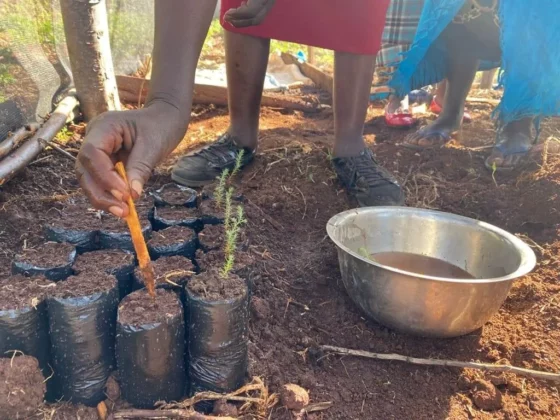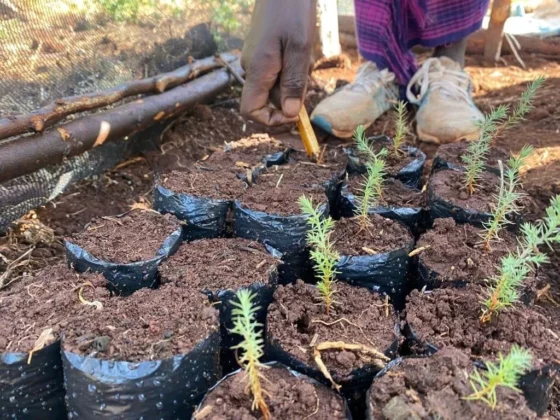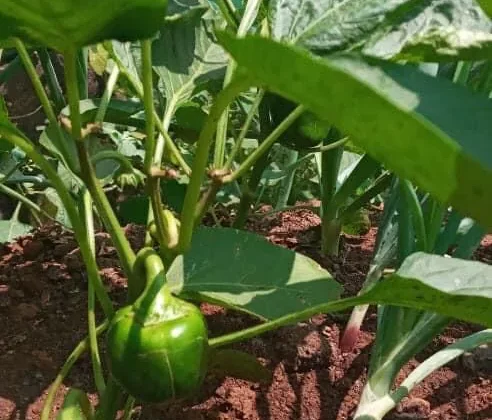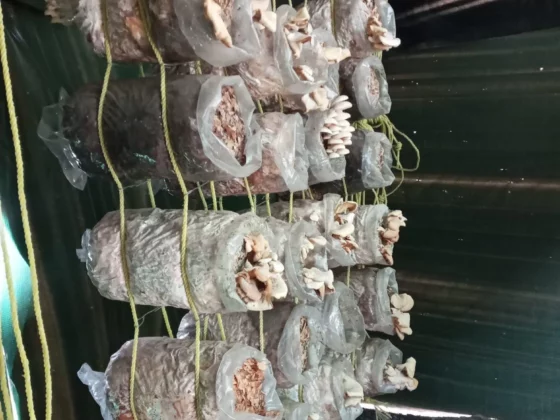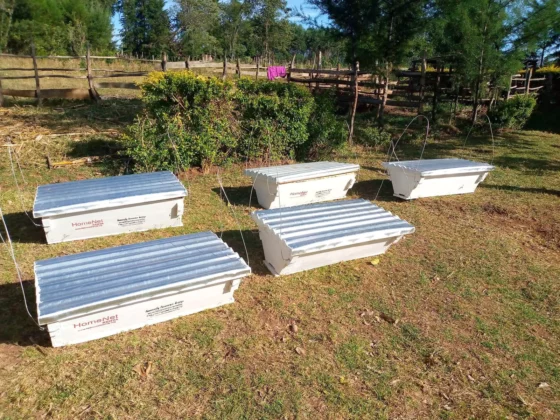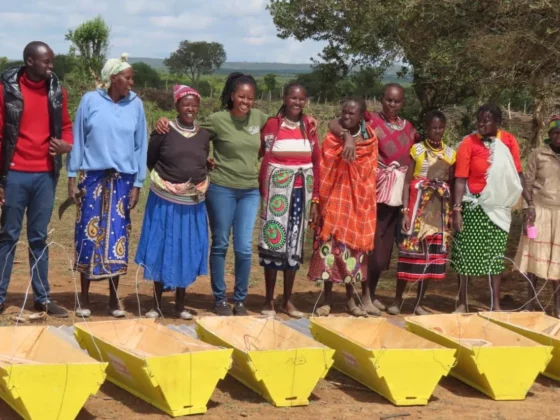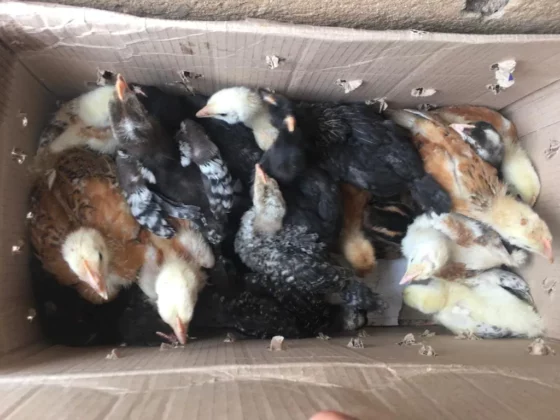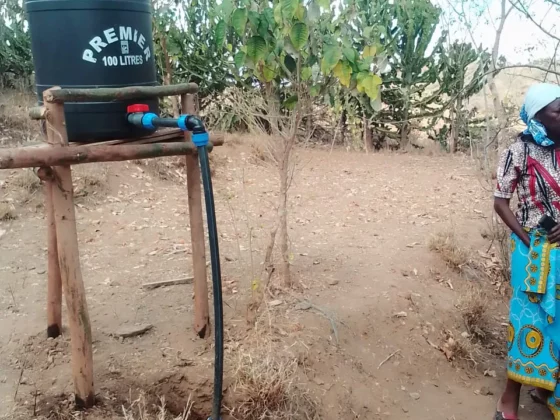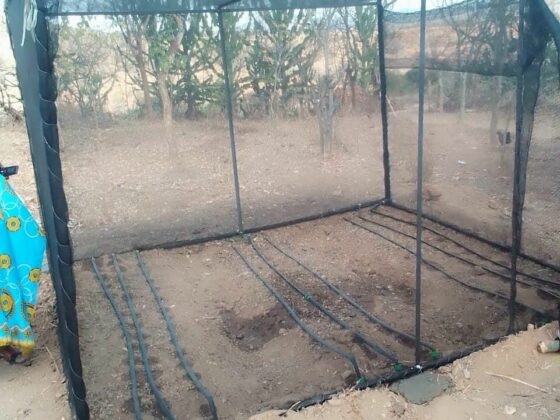With the advent of Covid-19 and protocols that came with it; HomeNet Kenya together with its stakeholders did realize that the HBWs livelihoods initially derived from the craft items were drying up.
Through a robust consultative process, the HBWs purposed to utilize other opportunities around their homes hence, implementation of livelihoods around their homes with the support of HomeNet Kenya, HomeNet International and WIEGO through the Ford Foundation Social Justice Bond Grant.
The implementation did target: Kitchen gardens, Bee keeping, Tree nurseries, Mushroom farming and Chicken rearing.
The primary aim of the Livelihood Program is to actively combat poverty and inequality by fostering employment opportunities within households of home-based workers. The focus is on uplifting highly vulnerable households, propelling them toward sustainable livelihoods, and ultimately achieving economic stability. Our overarching goal is to enhance the well-being of home-based workers, addressing their fundamental needs such as food security, employment opportunities, business prospects, and access to healthcare. Beyond immediate problem-solving, this initiative empowers home-based workers to contribute meaningfully to environmental care and take a proactive stance against climate change. Through these concerted efforts, we aspire to create a positive impact on both individual lives and the broader ecological landscape.
The engagements that were initiated in early 2022 turned out successful and the HBWs have picked up the initiatives and currently replicate amongst their group members. Besides the implementation of the livelihood projects, HomeNet Kenya are currently working with its membership to set up a SACCO for building up savings towards investments and credit.
Tree Nursery
Tree nursery project is essential to homebased workers as they;
- provide income-generating opportunities,
- act as models for further nursery development,
- provide seedlings more cheaply to planters, and
- can raise the particular species that local people are interested in
8 tree nursery projects were implemented to the homebased workers in Machakos Cluster, Nairobi Cluster, Kisumu Cluster, Bungoma Cluster, Kisii Cluster, Nakuru Cluster, Elgeyo Marakwet Cluster and Nandi Cluster.
Kitchen Gardens
Kitchen gardening is a method of cultivating plants, like vegetables and herbs, in the backyard of one’s home with the primary goal of ensuring a consistent and convenient supply of healthy produce for the family. Bag or sack gardens, also known as vertical farms, involve growing plants in tall sacks filled with soil. These vertical gardens are efficient in their water usage and space utilization. What’s great about kitchen gardening is that it doesn’t require a large plot of land, making it accessible for people regardless of where they live, and it allows for the production of fresh, chemical-free food.
This form of gardening offers numerous benefits, especially for individuals working from home and their families. Firstly, it promotes healthy eating by providing a steady supply of fresh, chemical-free vegetables. Secondly, it keeps individuals occupied, particularly during times like the COVID-19 pandemic when social activities are limited. Kitchen gardening can be a therapeutic and productive way to spend free time. Moreover, it offers round-the-clock access to fresh ingredients, saving you from last-minute grocery trips when unexpected guests arrive. Lastly, it contributes to cost and time savings, helping reduce grocery expenses and eliminating the need for frequent market visits.
Initially, 25 kitchen gardens were established, spread across various clusters affiliated with Homenet Kenya. After one year, in February 2023, the Nandi Cluster alone expanded from 4 to 11 kitchen gardens, reflecting the success and scalability of this initiative.
Mushroom Farming
Mushroom farming involves cultivating fungi for various purposes, including consumption, compost production, or pharmaceutical use. This process begins with tiny spores collected from mushrooms, which are then used to propagate mycelium on sterile cereal grain, resulting in a product known as “spawn.”
The practice of mushroom cultivation offers several advantages. It helps reduce vulnerability to poverty by providing a fast-growing and nutritious source of food while also serving as a reliable income source. Mushroom cultivation generates employment opportunities, as the fungi grow rapidly and contribute to the production of high-quality food. Additionally, this form of farming aids in the conversion of agricultural waste into edible human food.
The livelihood project for mushroom farming was successfully implemented by the Nairobi Cluster, showcasing the potential of mushroom cultivation as a sustainable and beneficial endeavor.
Beekeeping
Beekeeping is a process involving the maintenance of bee colonies, often kept in man-made beehives, and it serves as an essential alternative source of livelihood and economic activity. Beekeeping products have a wide range of applications in food, pharmaceuticals, and economic benefits for beekeepers. Beekeepers raise and manage bees primarily to produce honey, but they also harvest other hive products like beeswax, propolis, bee pollen, and royal jelly. Additionally, beekeepers can generate income through activities such as crop pollination, queen bee breeding, and the production of package bees for sale.
The various products obtained through beekeeping have significant value:
- Honey is not only a sweet and edible product but also a nutrient-rich food containing vitamins, minerals, amino acids, enzymes, and pollen. It provides energy and acts as an antioxidant.
- Beeswax is derived from worker bees’ wax glands and has a high melting point. It finds use in cosmetics and ointments such as cold creams, lipsticks, and polishes.
- Propolis and balms are substances used in repairing the beehive’s comb structure. Propolis, often called “bee glue,” is produced from a mixture of saliva and beeswax with tree bud exudate. It serves to seal gaps in the hive.
- Royal jelly, a milky secretion produced by worker bees, contains various nutrients and is used to nourish queen bees. It also has medicinal properties and is employed in the production of homeopathic and Ayurvedic medicines.
- Bee venom, while making bee stings painful, has medicinal properties and can be used in the treatment of conditions like rheumatism, arthritis, and Parkinson’s disease.
Beekeeping offers numerous benefits, including its role as an effective pollination agent, the production of nutritious honey, the supply of beeswax for cosmetics and pharmaceuticals, and the potential use of bee venom in medical treatments. Modern beekeeping methods, such as the Kenya Top Bar Hive, have been adopted by Homenet Kenya and implemented in various clusters, including Nandi, Laikipia, and Elgeyo Marakwet, showcasing the potential for sustainable beekeeping practices.
Chicken Rearing
These birds are farmed under proper care for using their eggs and meat as a source of food. Their eggs and meat are a rich source of protein and other kinds of vitamins and minerals. Their waste material i.e. feaces are used as a good source of manure which enhances the fertility of the soil.
To prevent them from any kind of disease they need to be kept in a proper atmospheric environment.
Chicken rearing comes in handy for implementation to the homebased workers because:
- Big Space is Not Required:
- Require Less Capital:
- High-Profit Rate:
- Require Low Maintenance:
- License is Not Mandatory:
- Easy Marketing:
- Income & Employment Opportunities:
Chicken rearing initiative was implemented by Kisumu cluster benefitting 4 Homenet Kenya affiliates.
Environmental Conservation
In our commitment to actively address climate change and champion environmental conservation, every project initiated under the livelihood program emphasizes judicious water use to minimize waste. By employing water-efficient practices, we not only contribute to environmental improvement but also curb potential forms of wastage. This conscientious approach aligns with our broader mission to promote sustainable living and ensure that our initiatives reflect responsible stewardship of natural resources.



